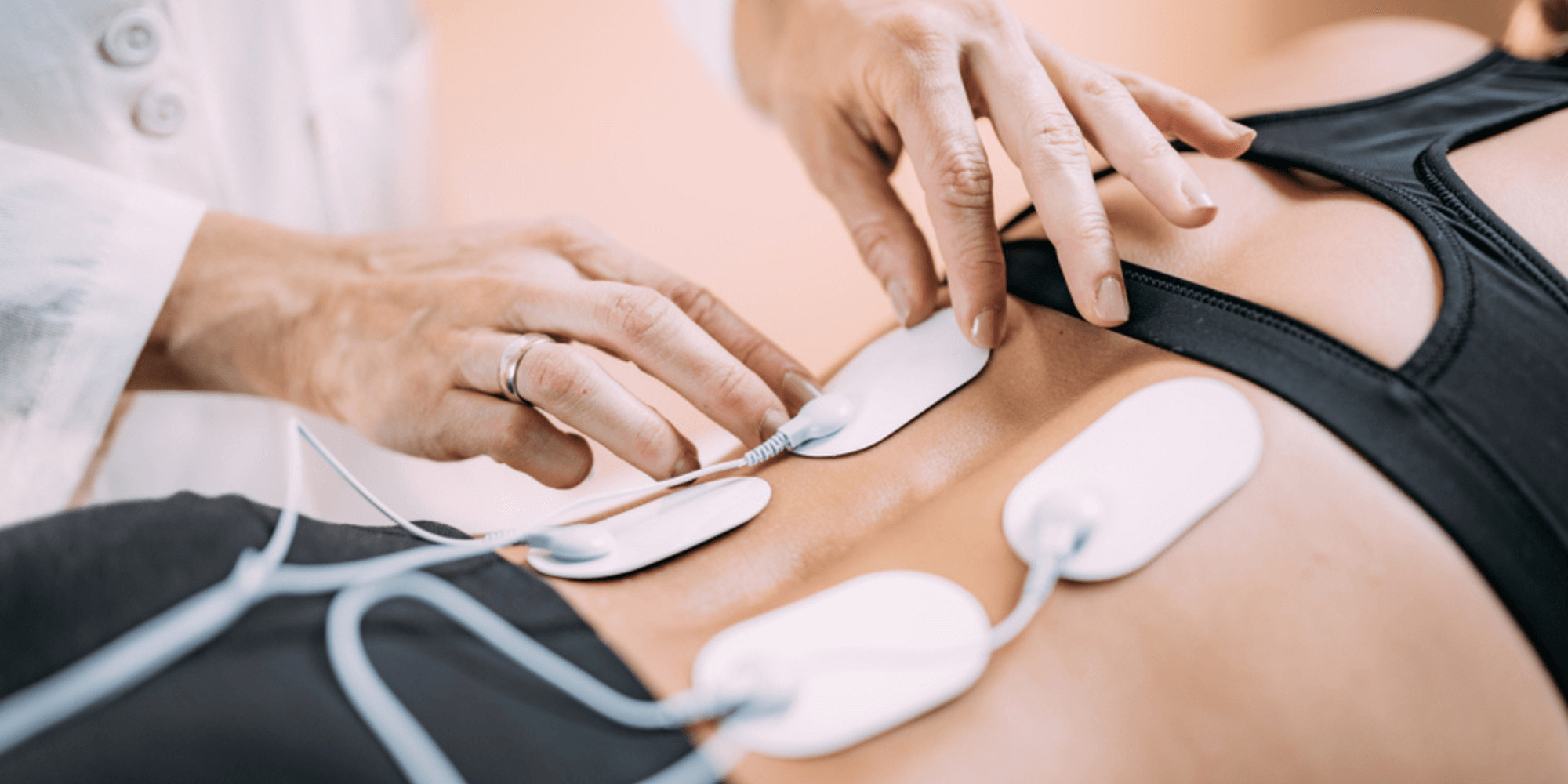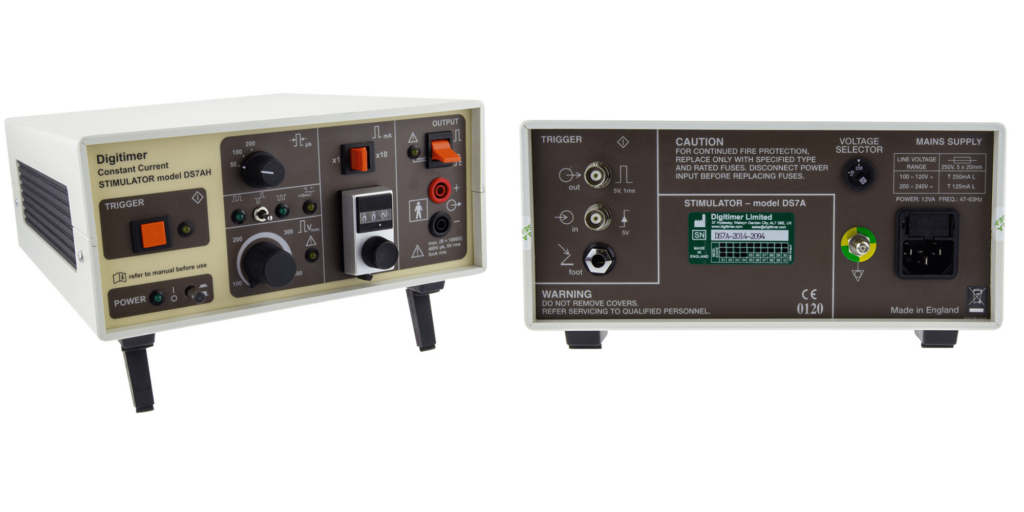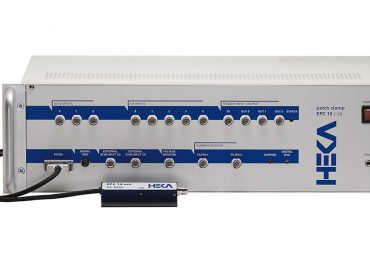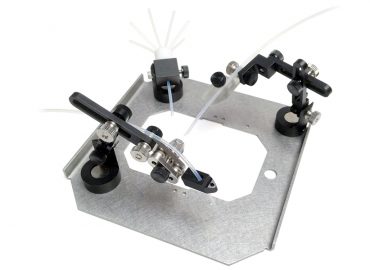Our DS7 family
Ideal for muscular electrical stimulation
Planning a research study that involves muscular electrical stimulation?
Electrical stimulation is a technique that sends electrical pulses to nerve and muscle tissue, causing the muscle to contract, thereby mimicking the action of the central nervous system.
Muscular stimulation is a popular area of research, particularly with respect to the beneficial impact it can have on muscle weakness and atrophy, movement, muscle spasticity, cardiovascular function and pain management. In the thousands of peer-reviewed papers that have used this type of stimulation, you may notice the same Digitimer electrical stimulation devices referred to time and time again.
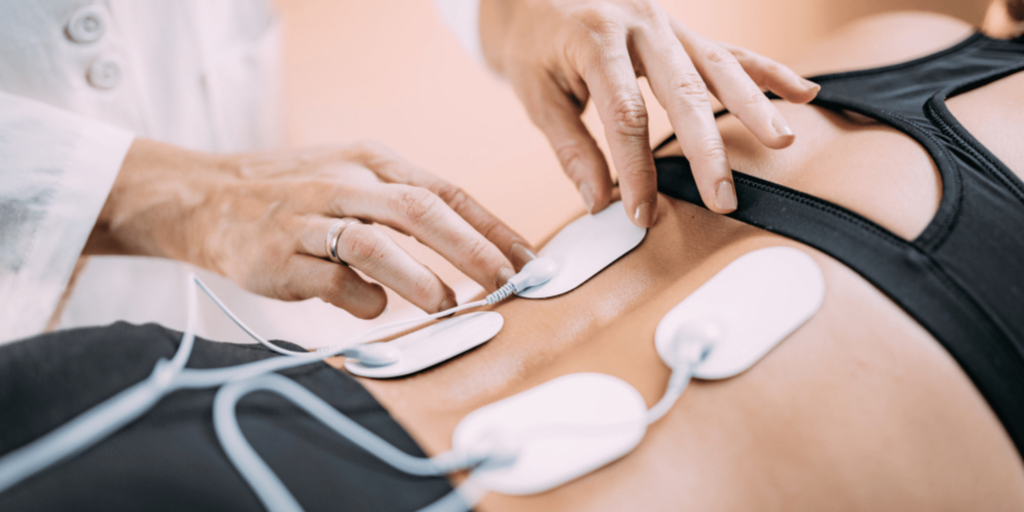
We’re incredibly proud that in the 35 years since the DS7 family was first launched, the DS7A and DS7AH have become the industry ‘gold standard’ for high voltage, constant current muscle stimulation.
Our experts in stimulator design and development have updated both devices to ensure their efficacy and safety in use. However, Digitimer engineers have also developed more-advanced nerve and muscle stimulators, specifically intended for demanding human research.
As a leading supplier of products for neuroscience and human physiology research, we offer a diverse range of electrical stimulators for a variety of human nerve and muscle stimulation applications.
These popular devices are now found all over the world and employed in fields as diverse as sports science, cognitive neuroscience, nociception, sensory motor control, rehabilitation and psychology.
Could they be suitable for your research?
To help with your decision, let’s take a look at the specifications for each.
Our ‘gold standard’ electrical muscle stimulation devices
DS7A
Designed for use as a general purpose electric muscle stimulator.
The DS7A provides constant current, high voltage pulses of brief duration for transcutaneous stimulation, during the investigation of the electrical activity of nerve and muscle tissue.
To meet the requirements of human pathological cases, the device’s output current is continuously variable over the range 0 to 100 milli-Amps (mA) – from a source voltage continuously variable from less than 100 to 400 volts. Pulse duration can be varied from 50 microseconds (µs) to 2 milliseconds (ms).
In response to customer demand, the latest models of the DS7A now include a three position (positive, alternating and negative) polarity control. Not only does this allow the user to automatically alternate polarity between successive stimuli, it also helps to prevent polarisation of the stimulation site and the potentially harmful electrolytic effects of longer periods of stimulation.
The DS7A is a CE marked medical device, cleared by the FDA for marketing in the USA.
DS7AH
Essentially, the DS7AH is the same device as the DS7A. It’s just a different model, designed for more demanding applications.
To overcome the difficulties of stimulating deep peripheral nerves and large muscles (such as the quadriceps) with large area electrodes, the DS7AH allows currents up to 1A (compared to 0-100mA) – from a source voltage of 400 volts. To keep the pulse energy maximum below 50mJ, it also has a reduced maximum pulse duration limit of 200µs.
Aside from these two differences, the DS7AH boasts all the same beneficial features – including alternating polarity control, flexible trigger options and just like the DS7A, it is FDA cleared and a CE-marked medical device.
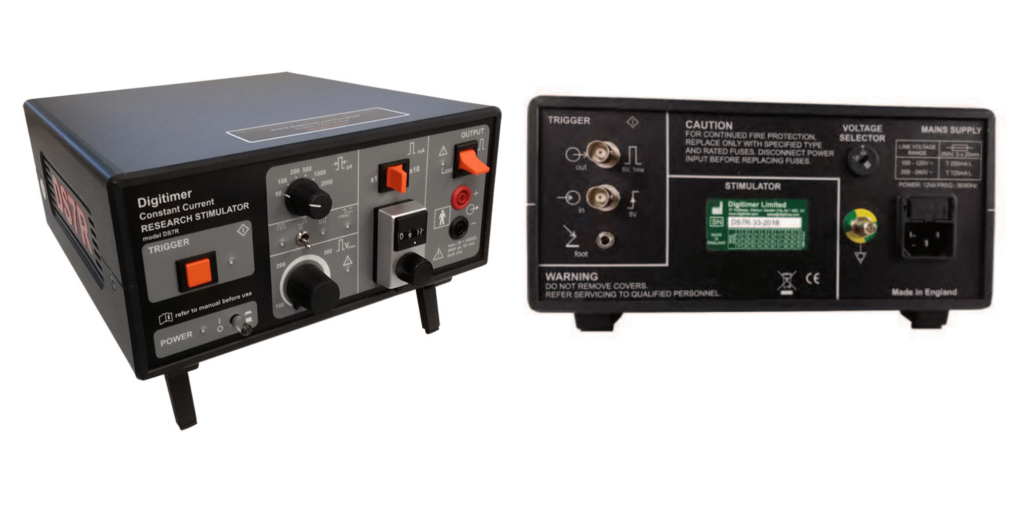
DS7R
An electrical muscle stimulation device that offers the best of both worlds.
Based on the medically approved DS7AH, the DS7R is perfect for use in human research studies, which demand the same high currents – combined with the flexibility to use longer pulses.
It’s capable of delivering up to 999mA constant current, high voltage pulses (from 400 volts), at a pulse duration from 50µs up to 2ms (compared to just 200µs). Therefore, it is recommended for research applications in which deep nerves or nerve roots and large muscle groups require stimulation.
As this greater flexibility is only required in human research (rather than for clinical purposes), the DS7R is not medically approved and is marketed for human and large animal research use only.
DS8R – the next generation of electrical muscle stimulation
Digitimer’s DS7A and DS7AH devices have been the industry’s gold standard for a very long time now. However, to meet the increasing demand for a high-powered electrical stimulator with extended features, we recently launched the innovative DS8R.
The DS8R is the most advanced human research stimulator we have ever developed. It provides an array of new features, all designed to enhance the capabilities of researchers employing electrical stimulation in humans, and many of our existing customers have already decided to upgrade.
The benefits of the DS8R can be found in detail in our previous blog. To summarise briefly here, compared to the DS7A/AH, this new advanced muscle stimulator offers:
- Multiple options for external or programmable control of the stimulator settings ‘on the fly’.
- A truly biphasic, charge-balanced output with less than 1µs interphase interval.
- Much finer control of pulse duration settings, 50µs to 2ms in 10µs steps.
- Pulse parameter measurements displayed during stimulation.
- Special firmware that allows increased stimulation frequencies of up to 10kHz.
Need help choosing an electrical stimulator for your research?
Additional resources can be found throughout our website to help you make an informed decision.
For example, you can find a detailed specification for each stimulator available to download on their respective product page, as well as further useful information in our Life Science Brochure.
However, if you’re still unsure and struggling to pinpoint the correct electrical muscle stimulator, please don’t hesitate to get in touch. One of our experts will gladly talk you through the features of each, and once we know a bit more about the intended use, we can advise on the most suitable device for your requirements.
Simply give us a call on +44 (0)1707 328347. Or if you prefer, send an email to [email protected] and we’ll respond to your enquiry as soon as possible.
